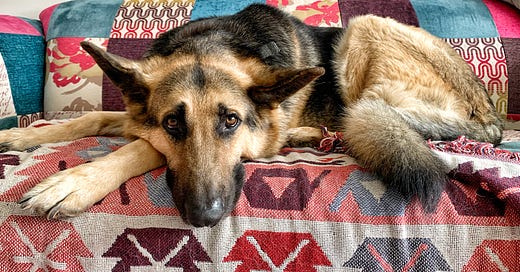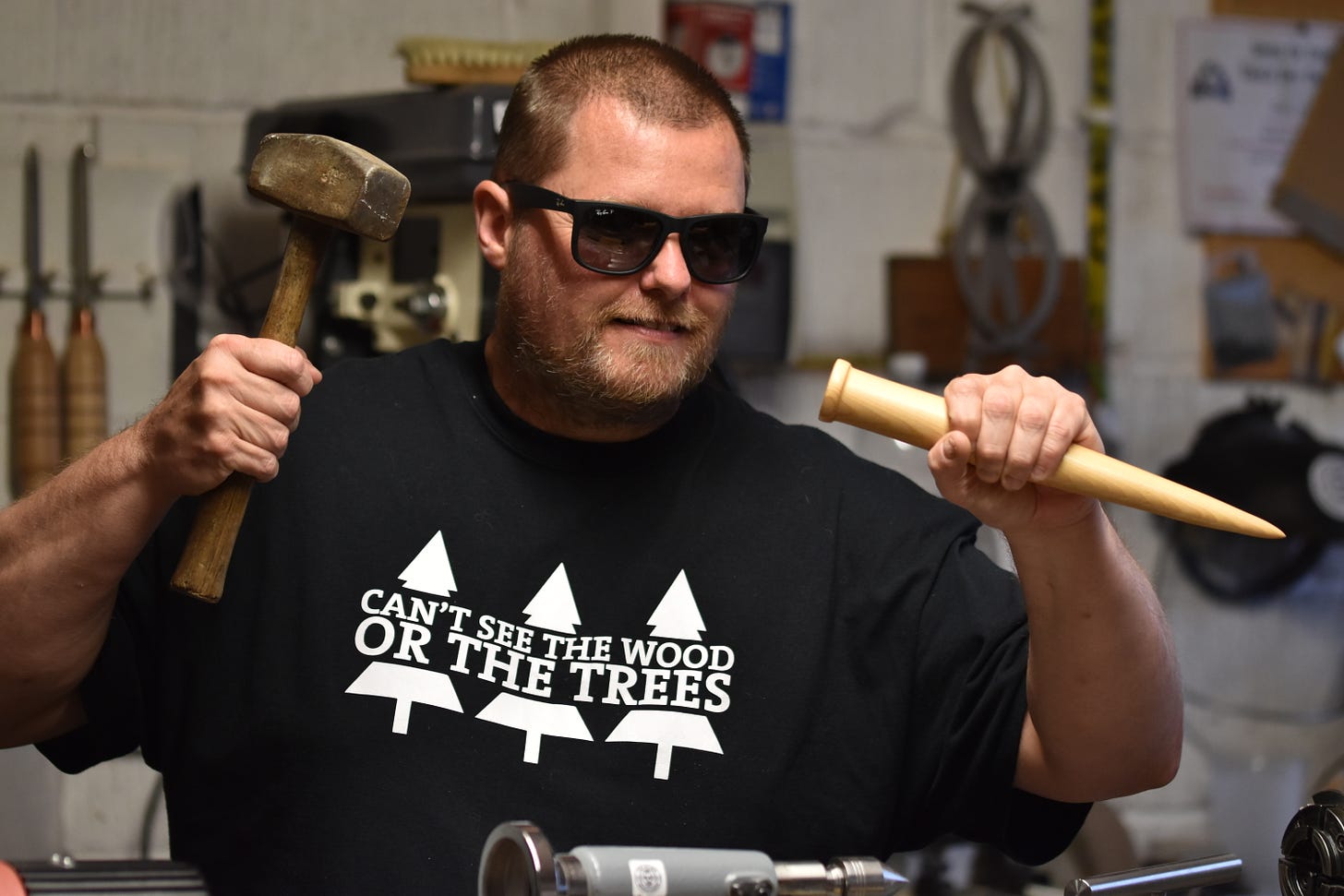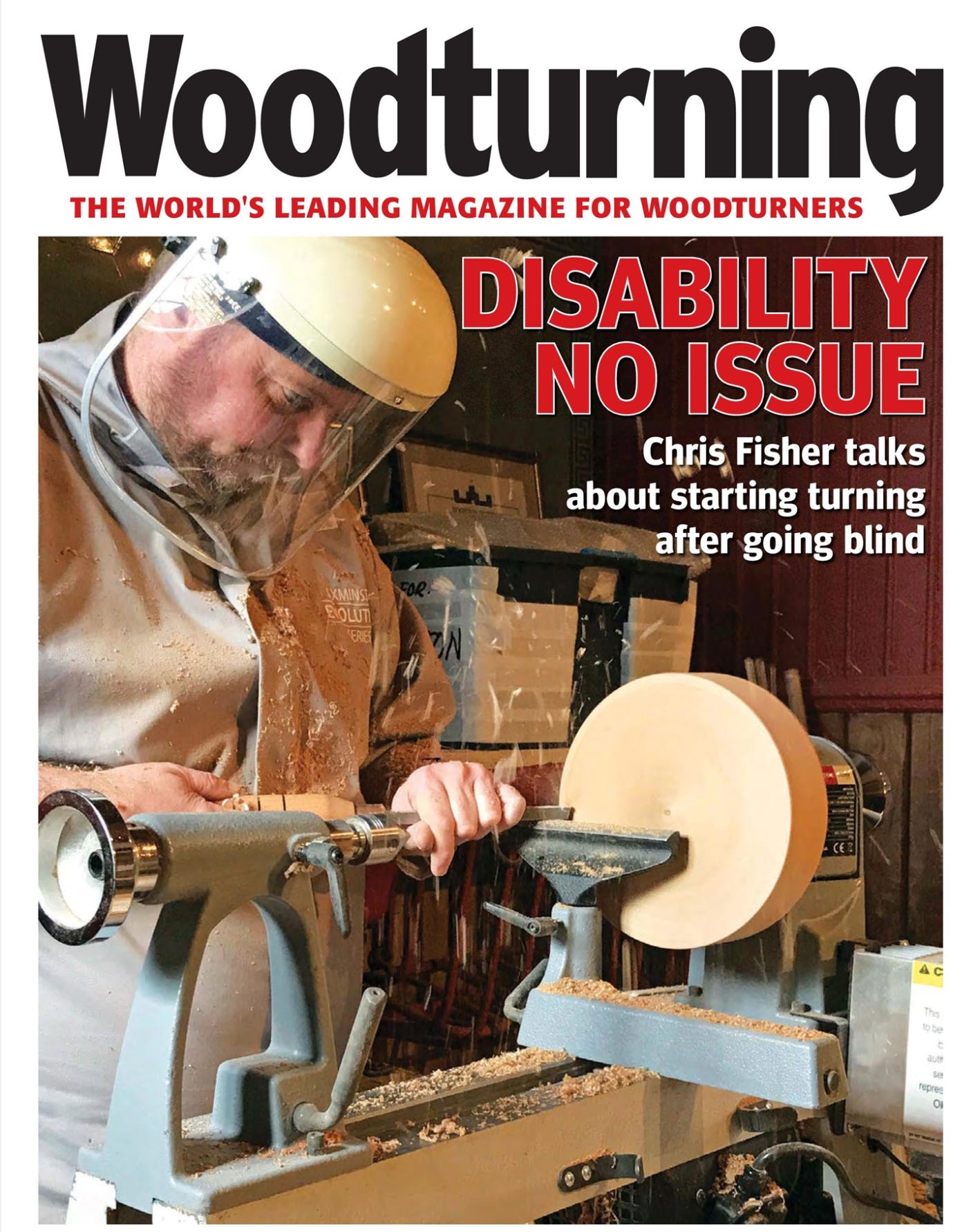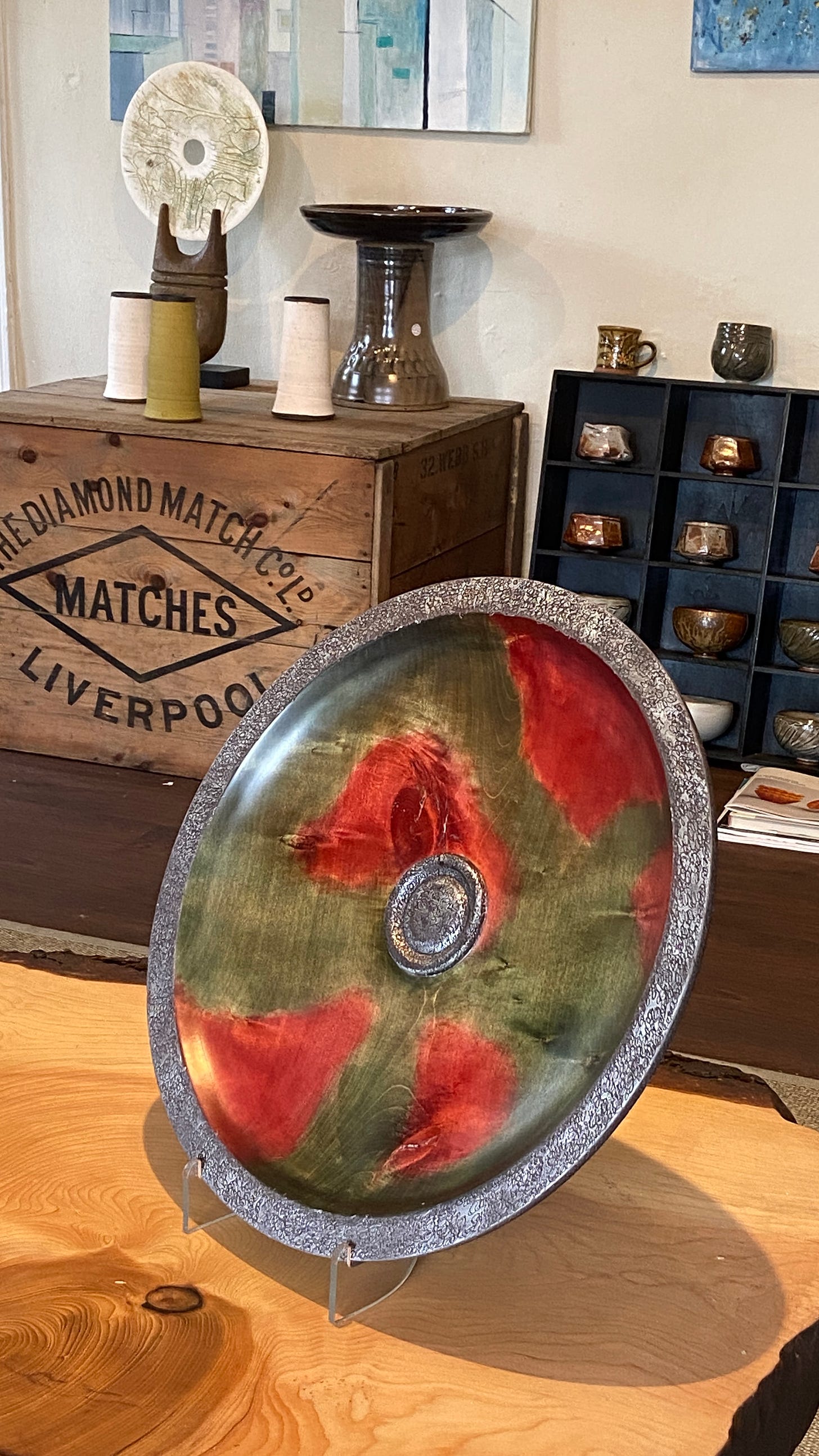I mostly subscribe to Keanu Reeves’ philosophy of life.
I’m at the stage in my life where I keep myself out of arguments. Even if you tell me 1+1=5. You’re absolutely correct, enjoy.
I’ve never been a fan of confrontation and have avoided it at all costs.
Since I met Chris, and saw life through a different set of eyes, that’s changed.
Chris is completely blind. He’s also a Woodturner. His Guide Dog, now 8, is called Bamber.
Our experiences are not unique. Many other Guide Dog owners report similar instances. So much so, that Guide Dogs, as an organisation, has its own legal team.
The Good
We both enjoy going to cafés for a spot of lunch or a toasted teacake mid morning. A favourite place, Beaumonts in Ashbourne, is fully clued up. While our preference is the James Bond table in the dog room, they know we can sit anywhere with Bamber. They bring Chris’ teapot and mug, and turn the handle to face him, describe the location of the milk, and get it right every time. We go there because they look after us, the food is great, and we always have a good time.
This contrasts with an eaterie in Chorley at Middlebrook. The staff said we could sit in the corner, out of the way. If she had said, we have a table with a lot of space for your Guide Dog. Would you like to sit there or would you prefer another table, we would have reacted more positively.
A lot of the issues stem from semantics.
The Bad
A bistro in Southport told us dogs weren’t allowed. ‘He’s a Guide Dog, he can go anywhere’, we said. They wanted to check with their Manager. At that point we could have reported them to Guide Dogs, and the legal team would have been in touch. Businesses have been closed down for not adhering to the terms of the Equality Act 2010 regarding a Guide Dog.
We ended up in another corner, as far away as possible from everyone. The place was quite full. Every time someone new came in, I could see the choices of free tables being pointed out. The one next to us - Bamber was clearly getting a mention - and a few other tables.
One of the worst experiences was a favourite café in Ashbourne. They had recently changed their policy to no longer allow dogs. Up until then we’d never had any issue. ‘We don’t allow dogs’, they said. ‘He’s a Guide Dog’. ‘I’ll check with my Manager’. Then, ‘do you want to sit in the corner out of the way?’
We asked to speak to the Manager, who we knew. She explained the change of policy, we explained the Equality Act and rules of engagement for Guide Dogs. There was much mention of our other customers.
We sat at a table of our choice. The people next to us complained. I just wanted to leave. After fighting Bamber’s corner, I always lose my appetite.
Last night, we went to another of our regular haunts. I’ve wondered, on occasion, if they understand the Equality Act, but have let it slide because nothing crossed a line, and we wanted a nice evening.
They put us at the furthest table with instructions to sit Bamber on one side of the table to accommodate other guests, and in case they had allergies.
The Equality Act states:
Service providers cannot treat people with disabilities less favourably because of their disability or because they have an assistance dog.
Five minutes later, they came back and said we had to move Bamber again as a large party was sitting at the table behind us. Chris and I swapped seats. Bamber lay under the table, out of the way, as he always does and in line with his training.
As Chris puts it, the minute you put someone else’s needs above his, you’ve discriminated against him.
We were there for a birthday meal. Chris’ son had come for the weekend to celebrate with his Dad. All three of us just wanted to leave.
No Special Treatment
We don’t want any special treatment. Chris needs few accommodations. I take care of the logistics. We try to be mindful of others, the space available, and the most sensible location for Bamber.
All we hope for is to be offered the same level of service as the next customer.
On occasion you might have a complaint about your meal. Your steak might not be cooked how you like it so you send it back. But you’re not treated like a pariah or made to sit in a far corner. You don’t have unpleasant discussions before you sit down which taint the whole evening.
A lot of the problem relates to education. You wouldn’t ask someone in a wheelchair to leave it outside or a person with a prosthetic leg to remove it. Too many businesses have no idea of the implications of the Equality Act 2010.
Changing Perceptions
Equally, the general public think that a blind man who is a Woodturner or a contestant on Strictly is amazing (apart from these comments: how can a blind man dance/woodturn?).
If you or I lost our sight tomorrow, 1) we would do all we could to restore it, 2) we would flounder trying to navigate or do those daily tasks that, up until then, we had taken for granted.
Chris has been blind for 16 years. It is his normal. He can navigate around familiar places effortlessly. He has a brilliant memory. He hears stuff before I see it. He has some kind of sixth sense which many blind people develop.
While people mean well when they look at some of his woodturning and tell him well done, you can tag on … for a blind man.
Strictly’s Chris McCausland may think along similar lines:
… he said his participation on the show is "extreme" but hopes it will "go some way in stretching people's ideas of what is possible for a person with disabilities". BBC
And:
"I think there are low expectations of people with disabilities - sometimes you’ll come down a set of steps into a taxi and people say 'wow, how did you do that?'"
No pity party, please
I can only speak for Chris but he doesn’t want pity or to be patronised. He wants to show others what is possible, that your world doesn’t end when you experience a life changing trauma, and you can exceed expectations of what others believe is possible.
Chris is simply an artisan who happens to be blind.





